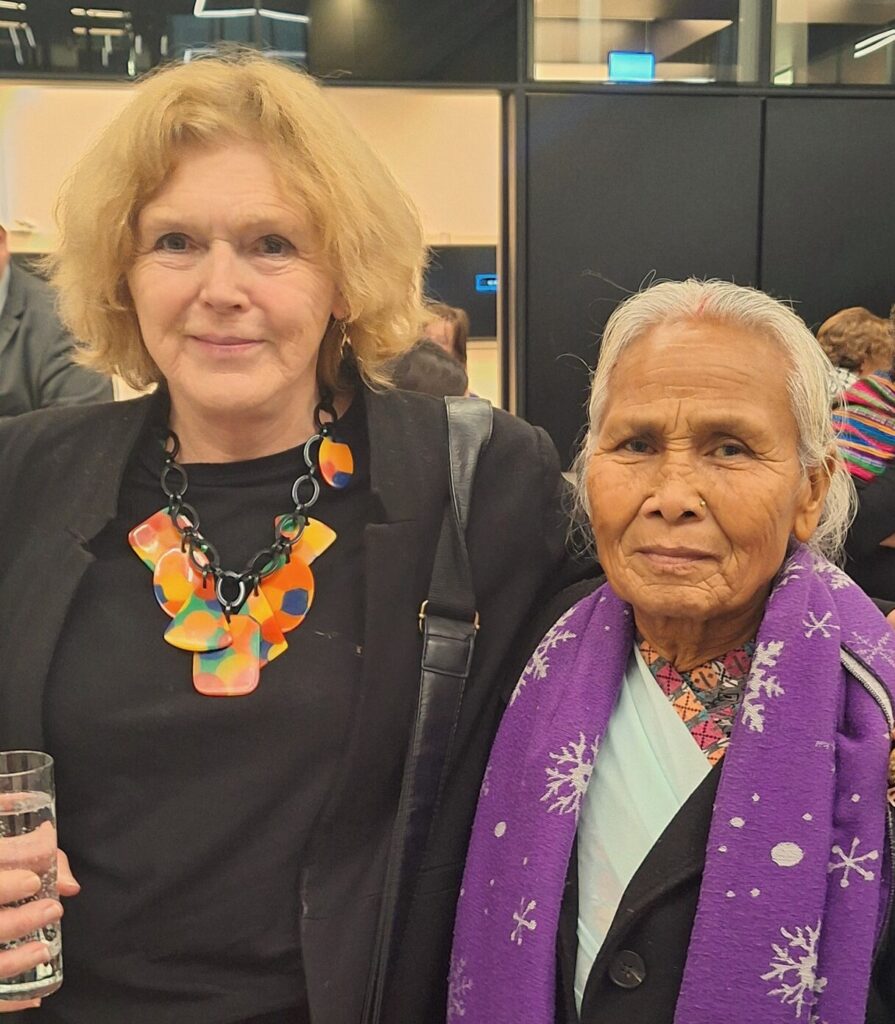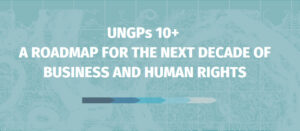
A guest blog by Nepali women’s rights defender Rambati Chaudhary. This statement was originally delivered at a round table event organised by a consortium of Luxembourgish human rights organisations at the University of Luxembourg on 12 November 2024.
Nepal, a naturally beautiful country in South Asia with a population of 30 million, is known for its cultural richness and diversity. With over 125 languages spoken by various ethnic groups, Nepal embodies a vibrant mosaic of ethnicity, socio-cultural values, and traditions.
Despite this wealth of heritage, many Nepalese people continue to suffer from poverty, marginalization, and socio-economic challenges. I come from the Tharu community, a marginalized ethnic group in Nepal’s Terai region. In our society, harmful traditional practices such as dowry, child marriage, witchcraft accusations, and menstrual taboos remain widespread. These practices, rooted in deeply entrenched social norms and values, have persisted for decades, keeping our communities far removed from the ideals of human rights.
I was married off at the age of four, and my mother passed away when I was just five. In our society, there is a prevailing belief that if a daughter grows up in her natal home before marriage, it increases the burden on her parents. This includes the financial cost of dowry and the perceived expense of providing her with an education. Girls are expected to manage household chores instead of attending school.
These harmful beliefs force many daughters into early or child marriages, robbing them of the chance for an education and a better future. I, too, was denied any formal education for these reasons. Tragically, girls who are forced into child marriages often face domestic violence, sexual abuse, and other forms of gender-based violence. These practices continue to perpetuate cycles of oppression and inequality for countless young girls.
Fortunately, I was not a victim of domestic violence, but the deeply ingrained belief in my community that women should not show their faces to men meant I had to cover mine with a shawl. Nepalese society is predominantly patriarchal, and this patriarchy has subjected me to gender-based discrimination from an early age.
Witnessing countless acts of social injustice against women throughout my upbringing planted the seeds of a revolutionary thought in my mind and heart. I realized I could not remain silent in the face of such inequality. This conviction drove me to commit myself to fighting all forms of discrimination in society. I began leading community-based campaigns advocating for ethnic rights and women’s rights in Nepal, challenging harmful norms and empowering others to demand justice.
In my younger years, women’s political participation was virtually unacceptable, with less than 3% of women holding political positions. For a woman from a socially marginalized community to fight for meaningful political representation was unprecedented—but I chose that path and dedicated myself to advancing women’s leadership in politics.
I faced significant resistance along the way. Senior political leaders repeatedly pressured me to withdraw my candidacy during elections, and I was often compelled to step aside. Yet, I remained steadfast in my fight. Through perseverance and commitment, I was eventually elected as Deputy President of the District Development Committee and later as Deputy Mayor in a local constituency in Udaypur district.
During my tenure, I amplified the voices of community women, advocating for their political rights and leading a campaign to ensure women’s participation in the constitution-making process. These efforts culminated in a constitutional guarantee of at least 33% women’s representation and a provision requiring one of the key leadership positions in local governments or parliament to be held by a woman.
Today, because of these reforms, approximately 40% of women have been elected to local governments—a remarkable achievement that reflects the power of collective action and resilience.
Gender-based violence remains a major concern for human rights defenders in Nepal. Alarmingly, at least seven women or girls fall victim to rape every day in the country. Sexual exploitation and abuse are deeply ingrained in society; for instance, women are solely blamed for infertility in families. Witnessing such injustices, I took the initiative to lead community women’s groups and organized numerous awareness campaigns to combat gender-based violence and violence against women.
As a woman human rights defender, I, along with my colleagues, have faced significant challenges, including domestic violence. Families often blame us, questioning why we fight for others instead of fulfilling traditional roles, such as managing household chores or agricultural work. This societal stigma is a constant burden.
Moreover, I have received threats from powerful men in public authority due to my work defending human rights. In many cases, the state and its institutions, like the police, are complicit in violations against human rights defenders, refusing to file FIRs (First Information Report) or siding with perpetrators. I have faced life-threatening situations, especially when supporting survivors of rape by taking their cases to the police or court.
Adding to these challenges, online violence is on the rise. Human rights defenders are targeted with character assassination, threats of abduction, and other forms of cyber harassment. Without any safety mechanisms at the grassroots level, we remain at significant risk.
Hence, our current work focus in Nepal is not only for a safe society for women, but also for a safer environment for women human rights defenders. For which, we, especially ethnic and women human rights defenders, are facing the problem of financial resources, sometimes lack of solidarity from the international community at downtrodden community level, and knowledge gap, hence I would like to request the International community to provide us flexible funding for community led human rights defending works.
We are taking the risks of life in our work for human rights and equality. We will obviously use the financial resources, applying a victim-centric approach, so you will not need to worry about the risks of misuse of resources. And I would also like to request that you all provide such international platforms through which we can connect our issues to international communities and also get knowledge, which will obviously encourage us on the ground.
I have also felt that there is a huge gap in intergenerational knowledge transfer, hence we need to unite the young generation in human rights defenders’ networks and transfer the knowledge and gain solidarity.
National human rights institutions, including human rights commissions, women’s commissions, and ethnic and Dalit commissions, remain largely passive. We urge them to adopt a more active and responsive role and call on the government to establish a security policy for human rights defenders in Nepal.
I am now 75 years old and remain tireless in my fight for the betterment of society and the rights of human rights defenders—a journey I have pursued for over 50 years. I urge all of you to join me in continuing this struggle for human rights and supporting our efforts on the ground.



